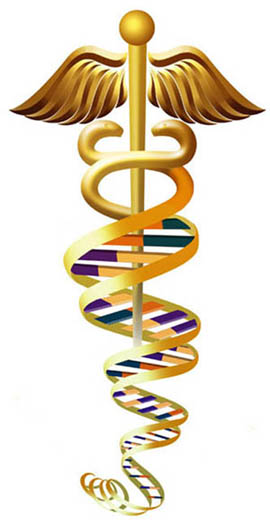The Science of Holistic Medicine
BODY: Physical and Environmental Health
1. Nutritional Medicine
2. Environmental Medicine
3. Exercise Medicine
MIND: Mental and emotional health
4. Behavioral Medicine (including Psychoneuroimmunology)
SPIRIT: Spiritual and Social Health
5. Spiritual Medicine
6. Social Medicine
The six specialized areas are:
1. Biomolecular Medicine
2. Botanical Medicine
3. Energy Medicine
4. Ethno- Medicine
5. Homeopathic Medicine
6. Manual Medicine
.
ABHM compiled a list for:
Components of Holistic Health
Loving your BODY:
Physical Health
• high energy and vitality
• freedom from or high adaptability to pain, dysfunction, and disability
• a strong immune system
• a body that feels light, balanced, and has good aerobic capacity
• ability to meet physical challenges
• full capacity of all five senses and a healthy libido
Environmental Health
• harmony with your environment (neither harming nor being harmed)
• awareness of your connectedness with nature
• feeling grounded
• respect and appreciation for nature, the earth at all of her inhabitants
• contact with the earth; breathing healthy air; drinking pure water; eating uncontaminated food;
exposure to the sun, fire, or candlelight; immersion in warm water (all on a daily basis)
Loving your MIND:
Mental Health
• peace of mind and contentment
• a job that you love doing
• optimism
• a sense of humor
• financial well-being
• living your vision
Emotional Health
• self-acceptance and high self-esteem
• capacity to identify, express, experience, and accept all of your feelings, both painful and joyful
• awareness of the integral connection between your physical/emotional bodies
• confronting your greatest fears
• fulfilling your capacity to play
• peak experiences on a regular basis
Loving your SPIRIT:
Spiritual Health
• experience of unconditional love/absence of fear
• soul awareness with a personal relationship with God or spirit
• trust in your intuition and a willingness to change
• gratitude
• creating a sacred space on a regular basis through prayer, meditation, walking in nature,
observing a Sabbath day, or other rituals
• sense of purpose
• being present in every moment
Social Health
• intimacy with the spouse, partner, relative, or close friend
• forgiveness
• sense of belonging to a support group or community
• touch and/or physical intimacy on a daily basis
• selflessness/altruism
The American Board of Holistic Medicine took an enormous leap for Western medicine putting aside the
rationalistic/scientism model for understanding the human condition moving into the current transitional approach in holistic medicine research by stating that, “The primary objective of the practice of holistic medicine is the experience of optimal or holistic health. Optimal health is the unlimited and unimpeded free flow of life force energy through body, mind, and spirit.” The statements continued further with an expression of, “Holistic physicians believe the essence of this energy is unconditional love. It is also called and chi (Chinese), ki (Japanese), prana (Sanskrit), and chai (Hebrew). The art of practicing holistic medicine lies in healing/loving ourselves; and our work is to help our patients by identifying and committing to mitigate and remove the restrictions and obstructions that cause dis-ease to prevent us from fully experiencing and enjoying life. It is a process of facilitating growth and maximizing human potential.” (ABHM, 2000)
The twelve ABHM principles of holistic medical practice are:
1. Unconditional love is life’s most powerful healer.
2. Optimal health is much more than the absence of sickness
3. Illness is viewed as a manifestation of the whole person, not as an isolated
event.
4. Holistic physicians embrace a variety of safe, effective options in diagnosis
and treatment, including:
a. education for lifestyle changes and self-care
b. complementary approaches; and
c. conventional drugs and surgery.
5. Searching for the underlying cause of disease is preferable to treating
symptoms alone.
6. Holistic physicians expend as much effort to establishing what kind of
patient has a disease as they do establishing what kind of disease a patient
has.
7. Prevention is preferable to treatment and is usually more cost-effective.
The most cost-effective approach evokes the patient’s own healing
capabilities.
8. A major determinant of healing outcomes is the quality of the relationship
established between physician and patient, in which patient autonomy is
encouraged.
9. The ideal physician-patient relationship considers the needs, desires,
awareness and insight of the patient as well as those of the physician.
10. Physicians significantly influence patients by their example.
11. Illness, pain, and the dying process can be learning opportunities for
patients and physicians.
12. Holistic physicians encourage patients to evoke the healing power of love,
hope, humor and enthusiasm, and to release the toxic consequences of
hostility, shame, greed, depression, and prolonged fear, anger, and grief.
skip to main |
skip to sidebar

PArtnering for the BEST CARE anywhere Call: 866 BIOEMED

Healing Mind, Body, Emotion & Spirit

Quantum and Reiki Healing- Usui and Karuna

Chakra Healing and Balancing

Biofeedback & Neurofeedback Expert

Train Your Brain

Quantum Energy Healing

Vibrational Healing

Conscious Hypnotherapy

Quantum Touch

Quantum Biofeedback

Pyramid Energy

Lightworkers & Angels At The Office- 2207 West Colorado Ave

Call Laurie for Appointment-866 BIOEMED



Podcasts


Inspiring Living Younger Longer
GRANT HEALTH & WELLNESS INFO

PArtnering for the BEST CARE anywhere Call: 866 BIOEMED

Healing Mind, Body, Emotion & Spirit

Quantum and Reiki Healing- Usui and Karuna

Chakra Healing and Balancing

Biofeedback & Neurofeedback Expert

Train Your Brain

Quantum Energy Healing

Vibrational Healing

Conscious Hypnotherapy

Quantum Touch

Quantum Biofeedback

Pyramid Energy
Call for Appointment- 866 BIOEMED

Lightworkers & Angels At The Office- 2207 West Colorado Ave

Call Laurie for Appointment-866 BIOEMED

MORE GRANT BLOGS
About Laurie

- Laurie Grant
- Colorado Springs, Colorado, United States
- Laurie L Grant, PA-C, MBS is an Integrative Medical Professional with over 35 years of extraordinary experience & expertise in esoteric wisdom, multidimensional energy healing, as well as extensive traditional medical experience. Laurie Harmonizes Science and Spirit. She has a Master degree in Biochemistry & Physiology, and currently completing a doctorate degree in Divinity. She has Clinical, Research, Teaching & Leadership training. She is a Master Healer, Author, Professional Speaker, Teacher, Stress, Quantum Biofeedback & Neurofeedback Expert, Health Blogger & Podcaster. Her patients learn to heal on every level- Physical, Emotional, Mental & Spiritual. She IS Living Younger Longer with Energy and will show you! She is an Ordained Minister & Leader of The Intenders of the Highest Good Circle. Laurie is Passionate about Granting YOUR wish for Health & Wellness on every level! Distant & Remote Healing Main OFFICES in Colorado Springs GRANT HEALTH & WELLNESS, LIFE'S CYCLES 866 BIOEMED or 719 531 5768 ©:http://www.GRANTHEALTHANDWELLNESS.blogspot.com ©:http://www.GRANTHEALTH.blogspot.com ©:http://www.GRANTHEALTHSEMINARS.blogspot.com

Podcasts
BlogCatalog

